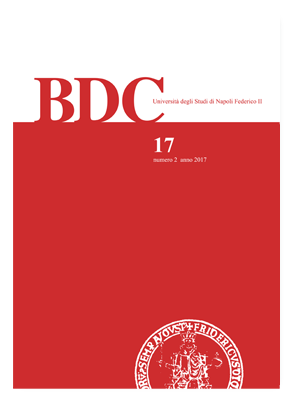UNA RIFLESSIONE SUL MODELLO DI BUSINESS DELLE VILLE VESUVIANE
Abstract
The Vesuvian area owes its fame mainly to its archaeological heritage, the ruins of roman cities burned and buried by the volcanic eruption in 79 AD. In addition to this priceless heritage, which strongly characterizes the identity of the territory, there are also further precious and less known resources. The Vesuvian Villas, a collection of 122 buildings of the eighteenth century, characterized by varying state of preservation, and evidence of a period of great historical splendour linked to the reign of Charles III of Bourbon. The persistence of negative economic results, although gradually decreasing since 2009, is currently at the centre of an ongoing debate that, as we hope, should help to redefine management choices compatible with the objectives of economic sustainability. This article attempts to reflect on the management of this historical and artistic heritage, with the aim of highlighting possible choices of change and achieving a more sustainable business model.
Keywords: cultural heritage, business model, sustainability
Downloads
Copyright (c) 2017 Bulletin of the Calza Bini Center

This work is licensed under a Creative Commons Attribution 4.0 International License.
